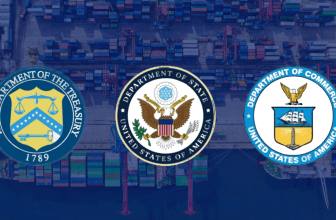

There have been hundreds of summary discretionary denial decisions from the Acting Director regarding inter partes review and post-grant review. We blogged on these decisions here, here, here, here, and here. On October 17, 2025, newly appointed Director Squires issued an open letter and memorandum to the public and to the Patent Trial and Appeal Board (Board), taking back authority previously delegated to the Board to decide whether to institute an IPR or PGR proceeding on the merits. Now, the Director will issue summary notices on whether to institute proceedings.
The Director appears to be engaging in rulemaking without notice to the public and an opportunity to comment. While the Director cited 35 U.S.C. § 3(b)(3)(B) as giving the Director authority to delegate responsibilities under the America Invents Act (AIA), there are numerous rules, enacted after public notice and comment, which delegate institution responsibilities to the Board, and involve the Director only after action by the Board. (Curiously, on the same day, the Director issued a Notice of Proposed Rulemaking, to limit discretion of the Board to institute inter partes review, seeking public comment.)
The Director’s October 17 actions represent a potentially highly significant curtailment of IPR and PGR practice. Potential IPR petitioners will have a lot to think about.
Not Following the Rules
The Director’s open letter and memorandum unilaterally countermand numerous Rules of Trial Practice which vest authority for institution of post-grant proceedings with the Board. These rules, enacted after a notice of proposed rulemaking and opportunity for public comment, represent the Director’s delegation of authority. Repealing or taking back that authority also should involve a notice of proposed rulemaking and opportunity for public comment.
At least the following Rules of Trial Practice represent the Board’s authority to institute proceedings:
- 37 C.F.R. § 42.4(a) states, “The Board institutes the trial on behalf of the Director.”
- 37 C.F.R. § 42.71(c) states, “A decision by the Board on whether to institute a trial is final and nonappealable.”
- 37 C.F.R. § 42.71(d) states, ”A party dissatisfied with a decision may file a single request for rehearing without prior authorization from the Board. The burden of showing a decision should be modified lies with the party challenging the decision. The request must specifically identify all matters the party believes the Board misapprehended or overlooked, and the place where each matter was previously addressed in a motion, an opposition, a reply, or a sur-reply.”
- 37 C.F.R. § 42.75(a) provides for Director Review of Board decisions on institution: “In a proceeding under this part, the Director may review any decision on institution…”
- 37 C.F.R. § 42.75(d)(1) makes institution decisions final unless “[a] party requests rehearing or Director Review ”.
- 37 C.F.R. § 42.108(a) states, “When instituting inter partes review, the Board will authorize the review to proceed on all of the challenged claims and on all grounds of unpatentability asserted for each claim.”
- 37 C.F.R. § 42.208(a) states, “When instituting post-grant review, the Board will authorize the review to proceed on all of the challenged claims and on all grounds of unpatentability asserted for each claim.”
By taking back institution authority from the Board and stating the intent to issue summary decisions on institution, the Director is depriving the parties – both patent owners and petitioners – of bases on which to request rehearing of institution decisions, or Director Review.
Making Some Rules While Not Following Others
On the same day that the Director issued the open letter and memorandum, the Federal Register published a Notice of Proposed Rulemaking, proposing to amend 37 C.F.R. § 42.108 to greatly limit when IPR proceedings may be instituted. Newly proposed subsection (e) to 37 C.F.R. § 42.108 prohibits institution of IPR proceedings if there is a prior adjudication of validity by a district court, the Court of Appeals for the Federal Circuit, the International Trade Commission (ITC), or the Board. Newly proposed subsection (f) prohibits institution of IPR proceedings if it is more likely than not that a district court or the ITC will issue a decision on the claims being challenged, or the Board issues a final written decision in another proceeding on the claims being challenged.
As a result of these new subsections, duplicate IPR petitions from completely different parties may prevent a party from filing its own IPR petition, even though the party may have completely different prior art, and may have no involvement whatsoever with prior petitioners.
In addition, newly proposed subsection (d) significantly expands the type of stipulation that an IPR petitioner accused of infringement in a district court proceeding would have to file, limiting the type of invalidity challenges that the petitioner can preserve at trial in district court. IPR proceedings can only be based on patents and printed publications, not on products or systems. This new subsection will prevent petitioners from raising product or system prior art invalidity defenses in court, even if they are different from the patent and printed publication-based challenges in IPR proceedings.
Far, Far Fewer IPR Petitions?
As a result of the newly-proposed subsections to the IPR rules, the same complaints about summary discretionary denial decisions will apply equally to summary institution decisions. IPR petitioners will not receive substantive reasons for denial of their petitions, and consequently will not have a basis on which to request rehearing. On top of this, the newly proposed subsections will greatly limit when an IPR proceeding can be instituted.
In view of these very substantial restrictions on IPR proceedings, petitioners will need to consider carefully whether it is worth spending several hundred thousand dollars to bring an IPR petition when the Director seems pre-disposed to deny petitions and yet will give no reasons for denying the petition.
At minimum, assuming discretionary denial is not a forgone conclusion, petitioners will need to be prepared to file IPR petitions very early after an action is filed, to ensure that a final written decision from the Board will precede the likely date the action will be resolved.
The post The USPTO Director De-Delegates – But What About the Rules? appeared first on Global IP & Technology Law Blog.






